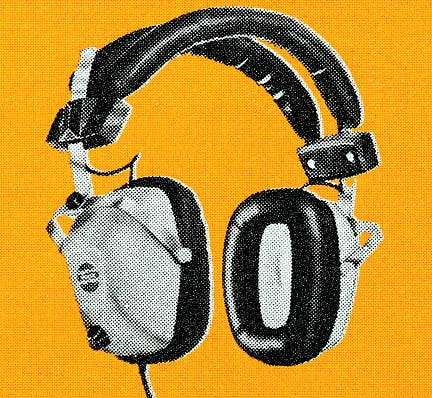In the world of podcasts, YouTube is now the elephant in the room — just like in TV
Podcasts are increasingly YouTube ft. everyone else — even tech giants like Amazon are restructuring to favor video-first podcasts led by hosts with big personalities.
Earlier this week, Amazon announced it would be restructuring its Wondery podcast business as the landscape increasingly shifts toward host-centric, video-integrated shows.
About 110 staff will be cut from the move, as first reported by Bloomberg, including the division’s CEO, Jen Sargent. Wondery’s existing narrative-driven studio and series will be moved under Amazon’s Audible banner, while personality-focused shows, like Jason and Travis Kelce’s podcast, “New Heights,” will find a home at Wondery’s new “creator services” team, per a memo shared by Business Insider.
The tech giant has largely allowed Wondery to operate independently since its acquisition in 2020, but the latest reorganization signals that Amazon’s $300 million bet into podcasts is getting more focused.
Podcast yourself
Amazon’s decision comes as the podcast industry reinvents itself. In June, Spotify laid off 5% of staff in its podcast division, while radio conglomerate Audacy shut down its audio-centric podcast business Pineapple Street Studios after nine years.
The elephant in the room of all of this upheaval is YouTube — the silly viral internet video giant that became a TV, music, advertising, and now podcast giant. Per an April survey by Cumulus Media and media research firm Signal Hill Insights, 39% of all weekly podcast consumers use YouTube as their primary platform, more than double the share from late 2019. The video platform estimated that more than a billion people a month are watching podcasts as of February.
A large part of that domination comes from how podcast listeners across generations now consume the medium differently — nearly three-quarters of the respondents said they watch podcasts more often than listening to podcasts. That’s quite a stat for an “audio” medium.
YouTube’s domination echoes its success in TV — where it is routinely beating out Disney, Netflix, Paramount, and NBCUniversal.
Main character energy
At the heart of those video-integrated podcast shows are big personality hosts like Joe Rogan, Mel Robbins, and Amy Poehler, who, with their charisma and consistent jokes, amass legions of highly engaged, targeted listeners (and watchers).
Indeed, since YouTube started to share the most popular podcast shows on the platform in May, host-centric podcasts have been topping the leaderboard consistently in the US, with six out of the top 10 shows revolving around the host’s persona, according to the latest released weekly top 10 (starting July 21).
To get a sense of how much things have changed, think of the viral podcast appearances of the 2024 presidential campaign, with former Vice President Kamala Harris on “Call Her Daddy” and President Donald Trump on Joe Rogan’s podcast. Video? Tick. Personality hosts? Tick. The biggest podcasts of the day being true crime shows are long gone.
These days, podcasts are things you can watch, listen, or multitask to — a bit like the late-night talk show format that is, ironically, struggling so much on linear TV.
